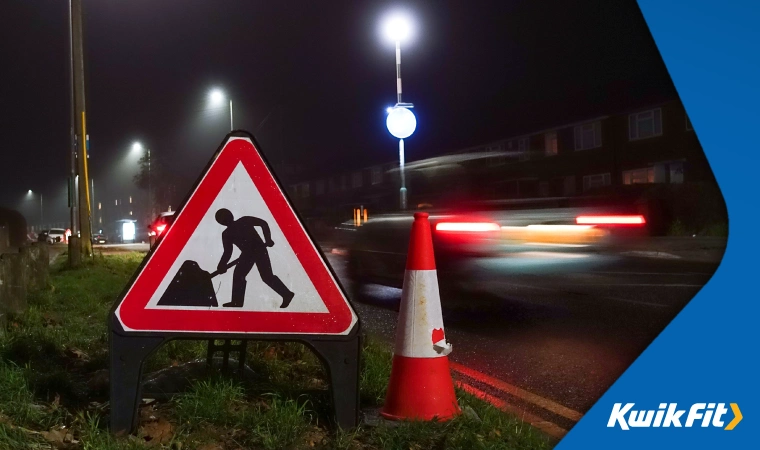England's Multi-Million Pound Road Safety Upgrade
Jack Dreyer | Friday 5th April 2024 8:00am

In a recent drive to make roads safer, the Department for Transport announced a £38.3 million investment allocated to council projects as part of the Safer Roads Fund. It is estimated that these investments will save 385 lives over the next 20 years. The fund will include designing new junctions and roundabouts, clearer signage and road markings, and improved pedestrian crossings and cycle lanes.
It shows that, certainly to the government, road safety is a priority - and that this push is a demonstration of the governmentís commitment to allocating funding for road safety projects across the UK.
So exactly what improvements are planned in the future, and what are our tips on staying safe on the road? Read on to find out more.
Designing safer roads for the future
What does the Safer Roads Fund entail? The £38.3 million will be designated for safety enhancements on 17 high-risk roads across England, part of a broader £185.8 million investment targeting 99 roads. It is hoped that by building new junctions, improving signage, surfaces, pedestrian crossings and cycle lanes, fatalities and serious injuries will be reduced by 30.8% on some roads over 20 years. On top of that, it will ease congestion and lower emissions.
The plan aligns with the governmentís broader road safety initiatives, such as updating the Highway Code, THINK! Campaigns, and systematic safety investigations. All in all, it aims to make road users - road, cycle and foot traffic - safer as they navigate around the UKís busy roads and streets.

Why is road safety important?
Whilst itís important that the government and local councils maintain roads, and find innovative ways to improve road structure to manage traffic and danger areas, ultimately it is down to road users to stay safe and to be aware of each other. Thatís not just other cars, but horses, buses, cycles and, of course, pedestrians.
So, how can we improve road safety together? We have put together a list of our top findings from previous blogs you can read here:
FLOWER checks
One of the simplest ways to keep safe on the road is to make sure the core elements of your vehicle are maintained and checked regularly. Completing our 6 simple FLOWER checks will help keep you and others safe on the road. You can get more information from reading this article on the checks but as a rundown, checking for fuel, lights, oil, water, electric and rubber is a good all-round system.
Doing home checks is simple, and making sure key functions of your car are up to date and working as intended can help avoid any sudden failures. Small things such as tyre pressure, or fuel checks can be just as important as the larger component checks, such as lights and headlights, and battery health.
Adapt to the weather
At first thought you may focus on bad weather, such as heavy snow or severe rain - especially as storms seem to be more common now. But there are plenty of things to look out for in the summer too, such as an increase in drunk drivers, potentially more traffic, and young people on summer holidays. Itís also important to check for tyre wear in the summer too.
Staying hydrated, making sure that air conditioning is working properly, and making sure youíre not too fatigued will not only make a journey more pleasant, but will also lower the chance of falling asleep at the wheel - or making mistakes which could lead to an accident.

In the winter and during storms, itís important to keep your windscreen wipers maintained and your fluid topped up to clear any kicked up mud and debris from the road. If your wipers are getting old and worn out then they need to be replaced. It is also recommended that you use the appropriate lights on the road and watch out for puddles and potholes which could damage your car or make you lose control on the road.
Make sure to keep safe on motorways too, weather conditions, traffic, especially on junctions, infrastructure failure and general behaviour of motorists make motorways hotspots for collisions and breakdowns. Road traffic safety is often overlooked as we tend to think about collisions taking place between singular cars when congested areas can be very dangerous, especially for motorbikes.
Keep your car maintained
Fundamentally, one of the most effective ways to keep safe on the road is to make sure you are taking your vehicle for regular maintenance and Kwik Fitís free safety checks. Kwik Fit doesnít just keep many of our real heroes on the road to ensure your safety, we keep your car maintained and road safe, so get in touch to book your service check with one of our expert technicians.
Any facts, figures and prices shown in our blog articles are correct at time of publication.
Featured Articles
Is it Illegal to Drive With One Headlight?
Saturday 19th July 2025
Wondering if itís illegal to drive with one headlight? Learn about the safety risks and penalties of illegal blown bulbs and why you should fix them promptly.
Air Con in EVs & Hybrids: Experts Answer Your Questions
Monday 30th June 2025
Does air con drain EV batteries? Can you use the air con while charging an electric car? Find out the answers to these questions & more from Kwik Fitís experts.
Why Is Your Car Making a Noise? Fixes & Tips
Friday 13th June 2025
When your car starts making unexpected noises, it can certainly be quite disconcerting; it may be nothing to worry about, but hereís what you need to know.









